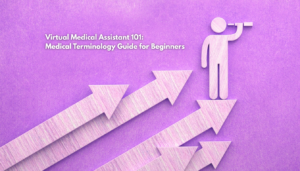How to Stop Procrastinating by Rewiring Your Brain for Action
19 Jun 2020 By: Natalya Bucuy
Updated

It’s 7 pm on a Friday and I’m going into panic mode.
I’m pacing my living room floor, biting my nails and trying to calm down the feeling of a thousand butterflies in my stomach. What am I going to do? There is no time!
I need to submit a story for peer review to my writing club by midnight. I had a month to write it. And I have exactly zero words on the page.
I have been a member of my writing club for a year and I submit a story once every couple months. This happens Every! Single!. Time!
And every single time I feel miserable, I stress out, and I kick myself for once again going through the procrastination cycle of hell.

This also has been happening my entire life. College papers, tax returns, bills… I wrote my maid-of-honor speech for my sister’s wedding on the way to the reception, for crying out loud. If there is any room for procrastination – and there is always room for procrastination – I take it. I do things last minute, always promising myself to figure out how to stop procrastinating.
Next time, of course. Next time, for sure.
How to Stop Procrastinating: No Quick-Fix Approach
Procrastination is a well-covered topic. One does not need to go beyond a quick Google search to find tips on how to stop procrastinating. (In fact, most of us do that search while procrastinating, using the activity as another means of delay for the task we’re trying to avoid.)
But like quick-fix diets and anything “As Seen on TV,” tips like “take a break” and then “just do it” are just not helpful. (Trust me, I tried. But a “break” turns into a three-day Netflix binging marathon. And the “just do it” inspires me to go jogging instead of filing my taxes.)
So what does work?
Taking the time to understand why we procrastinate can serve us much better. If we understand the deeper psychological reasons behind scrolling through Facebook instead of filing that report, we are more likely to stop the behavior.
Just as with the many quick-fix tips, there is no shortage of psychological studies and expert opinions on the topic. It can feel a bit overwhelming to go through them all. But in an attempt to curb my procrastination habit for good, I set out on the journey to understand the psychological reasons for procrastination.
I discovered some excuse-busting insights about the issue. I reviewed some psychological explanations for the behavior. And I learned some practical answers to the question of how to stop procrastinating.
Intrigued? Got a few minutes before your next project has to be started? Buckle in, we’re in for an exploratory ride to psychology of procrastination.
Excuses Are Well-Planned Lies
Oh, the lies we tell ourselves…
“I work better under pressure.” “Technology these days is just so distracting.” “I just need to be in the right mindset.” “I’m a creative type, that’s just how I do things.”
Sounds familiar?
Those are just some of the excuses we present in defense of procrastination. It’s a natural reasoning process in which we engage with ourselves and anyone else who questions our procrastination habits. After all, we’re all logical creatures. We have a need to justify our behavior and avoid responsibility for our procrastination.
But the truth remains that those statements are just that – excuses. Let’s take a closer look at these lies we tell ourselves.
1. “I work Better Under Pressure.”
Diamonds might be made under pressure, but our best work, certainly, isn’t.
Seemingly, we procrastinate to make us feel better by avoiding a task we dread doing. However, in reality, the opposite is true.
I attest to the fact that while delaying sorting my laundry feels great while I read a book instead, looking at piles of clothes on the bed does not. And if I’m running late, which as a true procrastinator I do often, finding that specific yellow sweater is a nightmare.
“Procrastination isn’t just hateful, it’s downright harmful. In research settings, people who procrastinate have higher levels of stress and lower well-being. In the real world, undesired delay is often associated with inadequate retirement savings and missed medical visits.” (Eric Jaffe, Association for Psychological Science)
Additionally, when we tell ourselves and others “I work better under pressure” we’re most definitely lying to ourselves.
“It would be more accurate to say, “I work under pressure.” The adrenaline spike and stress of the situation make us think we are better off waiting, but in reality, it’s unlikely that our delay will make the final product any better.” (Dr. David Puder, Dr. Jackson Brammer, Psychiatry Podcast.)
Having completed a task successfully in a short amount of time in the past gives us a sense of false security. Yes, it’s self-comforting to recall that 20-page history paper I wrote all in one night back in college. But is it helpful?
We don’t work well under pressure. That’s just the only way we work because we procrastinate. We rush. And we stress. We sweat. And we feel miserable.
2. “That’s Just How I Am. I Cannot Change.”
While there are certain things Lady Gaga is right about when she sings “I was born this way,” procrastination is not one of them.
“There is no gene for procrastination,” Dr. Joseph Ferrari, PhD, a professor of psychology at DePaul University in Chicago explains. In his studies Dr. Ferrari determined that parenting styles and cultural rewards contribute to procrastination behaviors.
The learning begins in a home, where strict perfectionist parenting rules dictate children to “do things now and do them perfectly.” Such an attitude, in turn, causes kids to rebel and instead “do it later” as much as they can.
In a larger prospective, societal rules also reward procrastination. The tax filing deadline is on April 15, there is no reward for filing taxes in February. There is only a penalty for doing it in May. Naturally, one wants to hold on to his money longer and avoid the dreadful task of filling out government paperwork. “We don’t give the early bird the worm.” (Dr. Ferrari, Volitional Psychology podcast with Ali Ward)
That is terrific news! Because that means that because it is a learned behavior we can unlearn it and figure out how to stop procrastinating.
3. “Fast Pace of Life and New Technology Are to Blame.”
“You can always find a distraction if you’re looking for one.”
Tom Kite, a golf world hall-of-famer, is definitely right about that. The notion of modern technology, such as smartphones, video games, and other gadgets as an excuse for procrastination is a common one.
Dr. Ferrari combats this misconception by bringing up an interesting example of technology that supposedly aids procrastination…
Such as the snooze button on an alarm clock, introduced in 1956, that allowed procrastinating getting out of bed. (Dr. Ferrari, American Psychological Association.)
(Speaking of which, do you know why the snooze function lets you sleep for exactly 9 extra minutes? Interestingly enough, this is a topic of disagreement among snooze button theorists everywhere. Some believe that ten minutes is enough for a person to fall back into deep sleep, so nine would allow one to doze off, but not all the way. Others believe that 9 minutes was easier to program into a clock than a two-digit number.
You see what I did there? I looked up this juicy tid bit of trivia. I found myself a distraction while writing about distractions in an article about how to stop procrastinating!)
Similarly, the claim of a faster pace of living and being constantly busy, is also an invalid excuse, Dr. Ferrari says. He even takes offence to the notion, as our ancestors had so much more tasks to perform. They took care of their farms, supported their families, and did all that without the help of technology and modern commodities.
We’re not more busy. We’re just looking to make excuses.
“You cannot control the wind, but you can adjust the sails,” Dr. Ferrari says. “And if you have no sails, row.”
***
Ok, ok, you’ll say. We get it. We all make excuses. Now how do we quit? How do we stop procrastinating?
Well, we saw how we justify procrastination. Now, in order to make a meaningful and long-lasting change we must understand why we make excuses and procrastinate
So, next stop on this discovery trip is…the brain itself.
The War Between Your Ears
Where there is smoke, there is fire. With all the excuses in defense of procrastination, there must be a conflict going on somewhere. There is.
Paul Rulkens calls it “the war in heaven.” What is happening in the brain when we procrastinate is a battle between our “old brain” and our “new brain”.
The old brain, amygdala, is “the lizard brain”. It does not like risks or changes. It’s also partially responsible for all the emotions we experience. It is called the lizard brain because a lizard that’s all the brain a lizard has. It’s reaction and emotion-motivated. It keeps us away from danger by making us act on instinct.
The new brain, the prefrontal cortex, on the other hand, is the more evolved part of our brain. It’s responsible for decision making, planning, acting, and doing. Rational and calculating, it’s focused on building the future.
When we continue to procrastinate, the lizard brain is winning. It’s avoiding the task because the task feels annoying, boring, unpleasant, or labor intensive.
“Procrastination is an emotions coping strategy. It’s not a time-management problem, it’s an emotion management problem,” says Timothy A Pychyl Ph.D. Carleton University, Ottawa, Canada. “In a short term procrastination is a negative reinforcement.” (Radio Health Journal)
The lizard brain does not like negative emotions, so it pulls the plug on the whole thing and directs us to do something else instead. Anything seems more pleasurable than doing the task we’re procrastinating.
A study shows that high-frequency procrastinators are more likely to act on instinct and prefer immediate rewards over future rewards. (PubMed)
Doesn’t sound very logical, does it? Well, that’s that lizard brain talking.
Here, psychoanalyst Dr. Chris Heath shows the connection between procrastination and socks:
Win the War by Not Playing
So we now see clearly the war going on in our heads. The clouds of arrowheads of excuses are flying overhead. The battalion of guilty feelings is marching across the battlefield. And the barricade of self-pity is going up. How do we win this war> How do we stop procrastinating?
“War Games” happens to be one of my favorite movies from the 80s. The plot features a teenager, who accidentally breaks into a national security computer base and almost starts a nuclear war between the United States and the Soviet Union. In an attempt to stop imminent global conflict the teen locates the creator of the military computer. True to Hollywood spirit the pair stops the military from launching a warhead just at the right moment. It does so by teaching the automated computer system that is about to fire off a weapon to play tic-tac-toe with itself. The computer and the rest of us learn an important lesson – sometimes the best way to win is not to play.
We can apply the similar principle and learn how to stop procrastinating.
We must see our behavior for what it is, dismiss the excuses, validate the emotional feelings we are experiencing, address the threats, and then act. Then we can disarm the soldiers on the battlefield between our ears in the following this two step process.
Step 1. Stop the fight!
It’s time to put down your spears, soldiers. We see you, we hear you, we got you!
The first step to solving any problem is to acknowledge and understand its existence.
In their collaborational podcast psychiatrists Dr. David Puder and Dr. Jackson Brammer discuss the importance of acknowledgement. Often when we procrastinate, we are so focused on avoiding the task and explaining ourselves that we don’t even realize what we’re doing.
So stop, collaborate, and listen!
Listen to your own feelings. Why are you avoiding the task? It could be more than dreadful avoidance of boredom and monotony of some tasks. The lizard brain might be afraid of other things.
For example, perfectionism could be one thing that creates an obstacle.
Perfectionism creates procrastination and stress in writers
Write instead for discovery— Martha Alderson (@plotwhisperer) June 15, 2020
“If you dread the thought of performing poorly, and experience anxiety, what you fear is based on what you think of yourself if you fail, or how others may judge you.You see your performances as successes or failures and measures of your personal worth.” (Bill Knaus Ed.D, Psychology Today)
It’s also important to recognize any cognitive distortions or illogical thinking we might be experiencing. We might underestimate the amount of time needed to complete a task. Or overestimate the amount of future motivation we might have in the future. Or perhaps thinking we need to be in the right mood to complete the task. The lies we tell ourselves that we discussed earlier are also examples of cognitive distortions.
Being mindful about what’s going on in our brain will help us recognize what exactly we’re avoiding and why we’re delaying.
My mindful procrastination ritual involves making tea and then meditating, after which I drink my now cold tea
— Scott Murray (@strangewander) March 7, 2019
So sit still, take a deep breath, allow yourself to feel what you feel and think what you think. The battle is over. Now decide what you can do to win the war and do it!
Step 2: Quit, Divide, and Conquer.
I know this sounds like another war call, but it’s anything but. We can do all of the above quickly and peacefully.
Paul Rulkens, a business consultant and an expert on high performance, defines procrastination as follows: “Procrastination means knowing you need to do something, not doing it, and feeling miserable about it.” (Right on, isn’t it?)
He then defines successful achievement as “knowing you need to do something, not doing it, and feeling magnificent about it.”
Now if that sounds intriguing, but counterproductive, allow me to elaborate.
In his TED talk Paul Rulkens addresses the notion of strategic quitting.
“Consistently focus on quitting activities which no longer support your goals. This releases the energy to overcome procrastination behavior.” (Paul Rulkens)
What Rulkens means is that in order to achieve our goals and get motivated we must strategically stop doing things that do not serve our purpose. Delegate the task that you hate doing but someone else enjoys doing. Let your lizard brain quit what it wants to quit, then focus on the activities that support your final goal.
For example, if you do not like answering customer service inquiries, you may be procrastinating going through your emails. If you outsource your customer service to a team of customer support agents, the task is out of the way! Now you can deal with your other correspondence in peace.
Dr. Ferrari offers additional strategies to curb procrastination.
One is to divide the task into smaller parts. Make yourself do it for 5 minutes. Chances are, once you start, you might learn it’s not that bad. Another one is to surround yourself with doers. Attitude is contagious. If you’re feeling sluggish about a task, but your coworker one desk over is typing away and looking focused, you might find motivation faster.
Battle Notes.
Procrastination is not an uncommon problem.
According to Dr. Ferrari 20% of people are chorionic procrastinators. The rest still have battles between their lizard brain and their prefrontal cortex when it comes to delaying tasks.
If we recognize the problem, apply understanding and mindfulness, and allow our brain to do what it’s designed to do, we might just figure out how to stop procrastinating forever.
As for me, it’s submission Friday. My usual 7 pm panic will set in tonight as I prepare to submit another writing piece to my club. Yes, I procrastinated once again. But now that I have my psychological warfare on stand by, next time I will start writing early.
Next time for sure.


